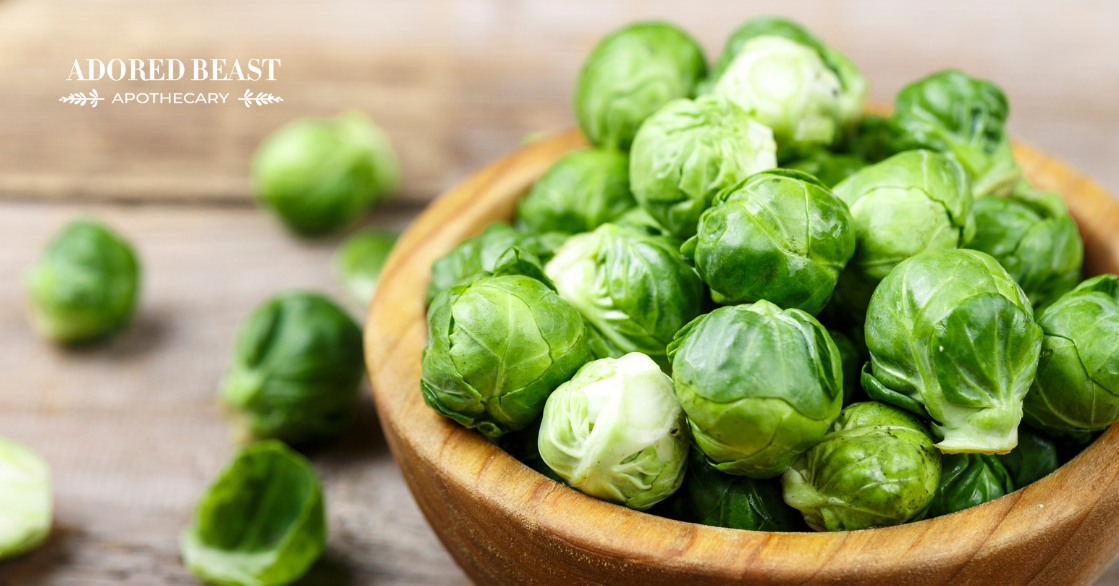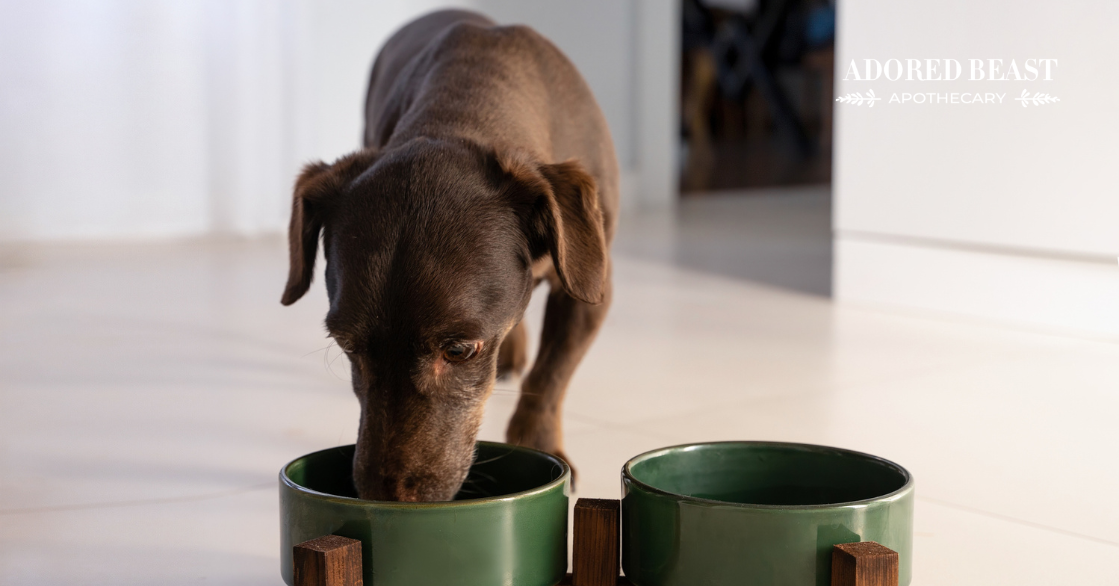When we were growing up, Brussels sprouts were not a big hit in our house. Our parents weren’t fans, so we were never “forced” to eat these little green bundles of flavour. However, as adults, my sister and I have both come to love them, and they’ve become a staple in both our houses…
As pet owners, we’re always looking for healthy treats to share with our furry friends. And since Brussels sprouts are a powerhouse of nutrition for humans, many wonder, “can dogs eat Brussels sprouts too?”
In this blog, we’ll explore the nutritional benefits of Brussels sprouts for dogs, how to safely prepare them, and other green veggies that are great for your pup.
Can Dogs Eat Brussels Sprouts?
Yes! In moderation (and rotation), Brussels sprouts are a great addition to your pup’s diet. When we’re making them at home, we always put some aside to share – and for good reason Brussels sprouts are packed with nutrients that can benefit your dog’s health:
- Vitamins: They’re rich in vitamins C and K, which are essential for immune function, skin health, and blood clotting.
- Fiber: High fiber content aids in digestion and helps maintain a healthy weight.
- Antioxidants: Compounds like sulforaphane help fight inflammation and reduce the risk of chronic diseases.
- Minerals: Brussels sprouts provide essential minerals like manganese, potassium, and folate, which support various bodily functions.
How to Feed Brussels Sprouts to Your Dog
If your dog is new to Brussels sprouts, you might be thinking, can dogs eat Brussels sprouts raw, or should you cook them? We do both!
- Raw Brussels Sprouts:
- Raw is great. They’re crunchy, so most dogs love the texture. We like to chop them up small and add them to dinner to make the easy to digest, or half them and let them crunch away (just be sure to monitor so they don’t swallow them whole).
- Cooked Brussels Sprouts:
- Steamed or Boiled: Steaming or boiling Brussels sprouts until they are tender also helps make them easier for your dog to digest.
- Roasted: Lightly roast Brussels sprouts without any seasoning. Roasting can bring out a natural sweetness that dogs might find appealing. Again, cute them into smaller pieces.
No matter how you choose to feed them, start with a small amount to see how your dog reacts. Some dogs love them, as mentioned, but some just aren’t fans. If it’s not on their “yes, please” list, that’s ok!
While Brussels sprouts can be a healthy treat, there are a few things to keep in mind:
- Gas and bloating: Brussels sprouts contain a natural sugar called raffinose, which can cause gas and bloating if fed in large quantities. Introduce them slowly and in small amounts.
- Choking Hazard: If you’re not sure how your pup will eat them, cut them into small, manageable pieces to prevent choking, especially for smaller dogs. Keep an eye on them while they’re eating.
- Avoid Seasonings: We always serve Brussels sprouts plain. There’s no need to add any flavours – just feed them as nature intended.
Other Green Veggies We Love
In addition to Brussels sprouts, there are several other green vegetables that can make a nutritious addition to your dog’s diet. And, if your dog isn’t a fan of Brussels sprouts, try these instead!
- Green Beans:
- Benefits: Low in calories, high in fiber, and packed with vitamins A, C, and K.
- How to Serve: Steamed, boiled, or raw (chopped into small pieces).
- Spinach:
- Benefits: Rich in iron, antioxidants, and vitamins A, C, and K.
- How to Serve: Raw or lightly steamed or mixed into your dog’s regular food.
- Broccoli:
- Benefits: High in fiber and vitamins C and K.
- How to Serve: Raw, chopped up, steamed or boiled, without any seasoning.
- Celery:
- Benefits: Think of this stringy vegetable as nature’s dental floss!
- How to Serve: Raw (hold the piece for your dog if they’re new to it)
- Cucumbers:
- Benefits: Low in calories and hydrating, with vitamins K, C, and B1.
- How to Serve: Sliced and served as a crunchy snack.
If you’ve ever wondered, can dogs eat Brussels sprouts, now you know! Brussels sprouts can be a healthy and nutritious treat for your dog. They offer a variety of vitamins, minerals, and antioxidants that support overall health. Happy feeding!












